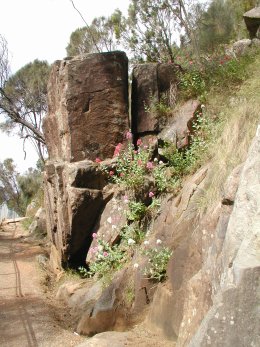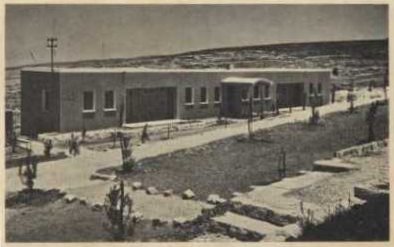Yom Kippur is the time of the year set aside by Yahweh for the confession of sins. At this time we can think of the king who during his reign made some grave mistakes. As a result he experiences suffering. This king is David. All these experiences meant that, in addition to being a talented musician, he became a compassionate king who could weep for his people and who could write songs for those who suffered.
Psalm 39 a song for those who suffer
King David wrote the words to this song and possibly also the music which we do not now have. He begins with the conclusion Job makes, to not speak before his God lest he sin (Job 40:4).
To the chief Musician, for Jeduthun,
A Psalm of David.
I said, I will watch my ways,
that I sin not with my tongue:
I will keep my mouth with a bridle,
while the wicked is before me.
I was dumb with silence,
I held my peace out of good;
and my suffering was stirred. Psalm 39:1-2
Most kings would say they can do great things for their people, but this king says even he, himself, must be silent before evil. Though David was king, he knew he could not preserve his people from the suffering created by wicked people. David gives his people a song with words of advice on how to face the inevitable evils of the world.
Though silent before evil so we don't sin before our Creator, David says we still must seek our Creator and ask for information,
My heart was hot within me,
while I was thinking the fire burned:
I spoke with my tongue,
make me to know Yahweh, my end,
and the measure of my days, what it is;
that I may know how frail (lacking, rejected) I am.
Behold, you have made my days a handbreadth;
and mine age is as nothing before thee:
verily every man at his best state is wholly vanity.
Selah. Psalm 39:3-5
Instead of building the self esteem of his people, David points out that even he, himself, at his best is nothing, and entirely empty. Even the king is found lacking and rejected. Every one who sings this song then identifies with the idea that life is short and uncertain, and we can assume nothing regarding our present position.
One of the greatest evils of this present age is disappointed expectations. People may be unhappy if they believe marketing for holidays or products by the reality of their experience. But beneath that, there is a more subtle expectation based on the philosophy that somehow every person's life should be long, successful and happy. But the reality is that every person's life can be changed in less than an hour by disaster, or by illness. If instead we know to expect evil and rejection in life, we have a deep gratitude when there is unexpected good, and though not disheartened at failure we rejoice greatly in unexpected long life and success. There is great power in this song of acknowledgement of weakness.

There is no envy in a society who sings (and believes) what David writes next,
Surely every man walks in a vain show:
surely they are disquieted in vain:
he heaps up riches, and knows not who shall gather them.
And now, Lord, what wait I for?
my hope is in thee.
Deliver me from all my transgressions:
make me not the reproach of the foolish.
I was dumb, I opened not my mouth;
because thou did it.
Remove thy stroke (stripe) away from me:
I am consumed by the blow of thine hand.
When thou with rebuke do correct man for iniquity,
thou make his beauty to consume away like a moth:
surely every man is vanity. Selah. Psalm 39:6- 11
Why should we envy the rich if we know they too are vanity, and those who heap up wealth do it in a world of uncertainty? David's words, unlike many repetitive modern songs, are a rational progression. He points out to his people that they have no hope at all due to the evil of this life. Then David turns the focus on Yahweh as the only source of hope. The next progression in thought is to ask to be delivered by Yahweh from the consequences of our own transgressions.
The central point, or argument, of this song for the people of Yahweh is that when we are dumb before evil, the evil comes about due to our own sin. There may be no direct connection, but due to sin generally, there is evil. David's song was about his personal experience, as the trouble in his later life was because he was rebuked for his sin, but who has not sinned? David's song is a gift to his people showing the reality of living with Yahweh. When being rebuked we will suffer and lose our beauty. We must also remember that in Jewish wisdom literature, Job, who is righteous, suffers and recognises that the loathsome disease he had was from Yahweh. But Job recovers and is blessed. Even if foolish or evil people mock, their power to harm us is in the Creator's hands. They have no power over us unless it is given to them. David asks his people to sing out loud that their God gives and is a source of suffering but also that they may ask that he takes away their suffering. There is immense hope in knowing that in the inevitable suffering of life we have power to ask that it be taken from us.

Hear my prayer, O Yahweh,
and to my cry give ear;
hold not thy peace at my tears:
for I am a stranger with thee,
a sojourner, as all my fathers were.
O spare me, that I may recover strength,
before I go hence, and be no more. Psalm 39:12-13
If we remember this song was for public national worship, the words are extraordinary. It is a public, national confession, that every person's life is short and full of suffering. What other king at the beginning of their national greatness has given a song to his people to prepare them for years of degradation and suffering? What other king has pointed out he, himself, is a 'stranger' to his people? What leaders have asked their people to sing that they are landless strangers, as their fathers were, and that they are all pilgrims in a world of suffering?
Amazingly over the years since it was written only such a song as this could give strength to the descendants of Israel when a place to live, wealth and often even life were uncertain. For us today, it also gives moral strength, for we too can learn from David's example, and know that our God may afflict us, but that he both hears us and has power to forgive, rescue and heal us.
The Messiah
To a point this Psalm also speaks of the Messiah's life. In the presence of evil people, especially the evil of the accusers at his trial, Yeshua was silent (Mark 15:5),
I said, I will watch my ways,
that I sin not with my tongue:
I will keep my mouth with a bridle,
while the wicked is before me.
I was dumb with silence,
I held my peace out of good;
and my suffering was stirred. Psalm 39:1-2
It is amazing to think David wrote a song his descendent could think of in his greatest hour of trial,
My heart was hot within me,
while I was thinking the fire burned:
I spoke with my tongue,
make me to know Yahweh, my end,
and the measure of my days, what it is;
that I may know how frail (lacking, rejected) I am.
Behold, you have made my days a handbreadth;
and mine age is as nothing before thee:
verily every man at his best state is wholly vanity.
Selah. Psalm 39:3-5
Just as we may have to, Yeshua faced his mortality. As a young man, when in the strength of his life, he was shown his life was to be short. He was called by Yahweh to know his end, and to know that he was rejected by many. He was a human in the best state, but, even he, in that state was wholly vanity. The remainder of the Psalm after that 'Selah' does not really apply to Yeshua, but the theme of a short life and a path of suffering ordained by Yahweh does apply. Yeshua was shown the measure of his days, and was willing to acknowledge that a long life was worth nothing compared to submission to the 'stroke' or stripe (v10) of the sovereignty of Yahweh. By willingly giving up his life he gained it. He actually gained more than life, he was also given leadership (Hebrews 1:4-9).
For us
David's psalm is sobering. He did not speak with ordinary human thinking. He does not build the self esteem of Israel with false images of good, but instead institutes a song that will give hope in the face of suffering. There is no doubt whatsoever that these words are from Yahweh, for his people, through David. The people of Yahweh, even his very own precious people, will feel Yahweh's hand on them. They will know Yahweh causes their suffering, they will know to be silent before evil people, and they will know that only Yahweh the Mighty One of Israel has the measure of the length of their days. We must acknowledge we are only pilgrims now. The people of God will also know they need to pray to be spared from trouble and for salvation. There is something to ponder: the one Yahweh loved best he asked to die a particularly painful death. The one who loved Yahweh most was willing, with help, to voluntarily give up his vain life. We perhaps miss the point if we don't realise we are asked to follow Yeshua (Luke 9:23, John 12:26).
After this I beheld, and, lo, a great multitude, which no man could number, of all nations, and kindreds, and people, and tongues, stood before the throne, and before the Lamb, clothed with white robes, .. And he said to me, These are they which came out of great tribulation, and have washed their robes, and made them white in the blood of the Lamb. (Revelation 7:9-14)
This is a multitude who sing another song, a song of their redemption. Tribulation of one sort or another is inevitable. We have been given a song that gives us understanding so we may measure our days. From this understanding we have moral strength to accept the reality of emptiness of the human state and our natural lack of strength, so we may pray for redemption and that perhaps, if it is the will of our Creator, we may be yet given strength in this life.
Paul explains the strength we have from the hope of deliverance from weakness,
Blessed be the Father of mercies, and the God of all comfort; Who comforts us in all our tribulation, that we may be able to comfort them which are in any trouble, by the comfort with which we ourselves are comforted of God. (2Corinthians 1:3-4)
For more When I am weak then I am strong
The Bible uses powerful word pictures, and the one of the prisoner waiting for release is of great importance for our lives. At the time of Passover it is worthwhile considering the prisoner with the idea of the joy of freedom.

The following is utterly speculative, and investigates based on known facts how and why God might have brought about the removal of JFK in the light of what has been said in the Bible about who rules in the nations.

It was written that,

For I will lay the land most desolate.. and the mountains of Israel shall be desolate, that none shall pass through. (Ezekiel 33:28)

How do true Christians relate to the state? We follow the scriptures and see where our place might be.

There are some that may argue learnedly about whether things, including themselves, exist or not. If they are pinched, however they hurt just like you and I. Pragmatically we coud not do anything much at all, unless we accept enough evidence can lead to proof.
.



